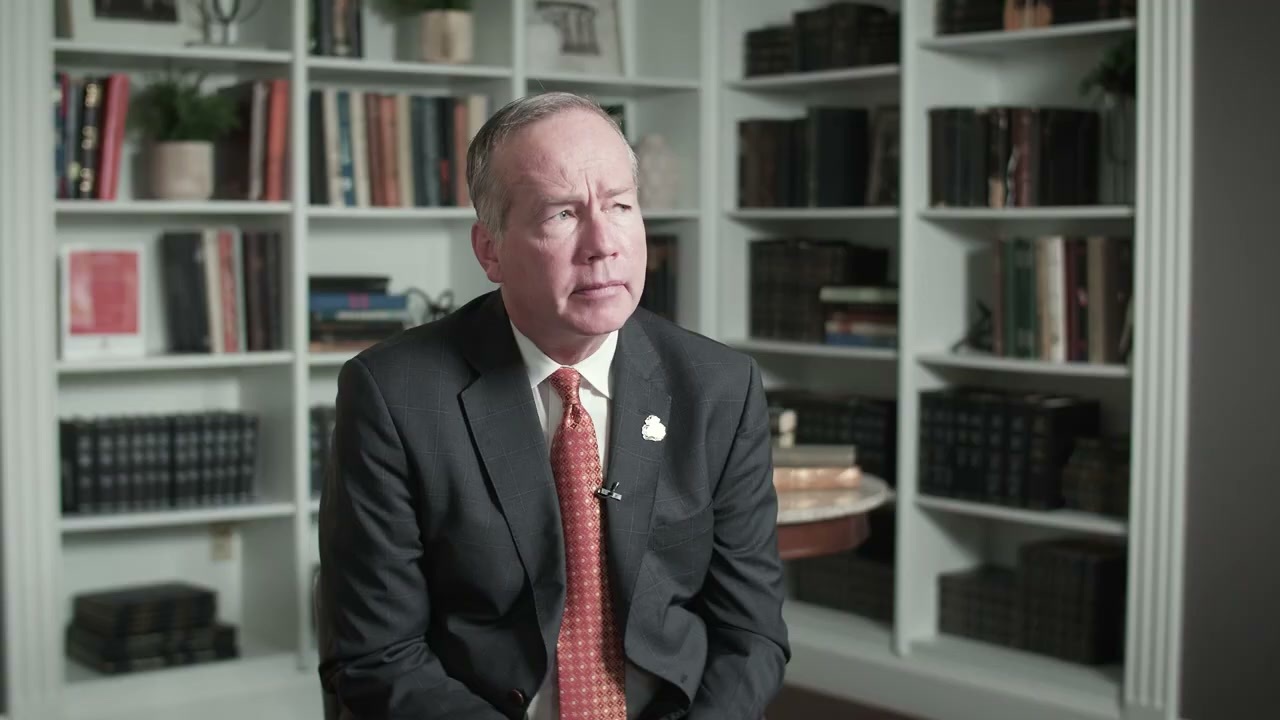Ex-LSU President Resigns His Job At Oregon State Due To LSU Scandal
5:59 PM EDT on March 23, 2021
On July 4, 2016, the following headline ran in the Louisiana publication the Advocate: "LSU athletes to receive required sexual harassment and sensitivity training as rape scandals rock national athletic programs.” The opening sentence warns of what LSU would like to avoid: "Baylor University, the University of Tennessee, Florida State University—the publicity these schools have received in the past couple of years is not the kind LSU is looking to replicate." Then-LSU president F. King Alexander was quite proud of this initiative; he told his Board of Supervisors they were being "proactive."
“There’s only two other schools doing this at the moment,” King said, as quoted in the Advocate article. “They’re doing it in a reactive mode due to problems they’ve had. We’re implementing this in a proactive mode.”
It's no surprise that years laters these words have been revealed as little more than a pile of public relations. In 2016, two LSU students told university officials they were raped by running back Derrius Guice, but no formal investigations were conducted. In 2017, an LSU tennis player and her family said they told people in the athletics department that she was being abused by football player Drake Davis, but no investigation was done until April of 2018. Then-football coach Les Miles twice kissed a woman who worked in athletics. And the problem wasn't with athletics alone. Two women said LSU refused to remove a fraternity member from a class they had with him even though he had sexually assaulted them. And the chancellor of LSU's Health Sciences Center in Shreveport is being investigated following accusations of sexual discrimination.
This has been reported on by USA Today, and by the Advocate, and then in further detail by an investigation commissioned by LSU, the Husch Blackwell report. By the time the story broke, Alexander was already gone from LSU, having moved on to become president of Oregon State. But that wasn't stopping people from wanting something to happen to Alexander, and understandably so. That's why, about nine months into his tenure at Oregon State, Alexander is gone. He offered his resignation today, which the Oregon State Board of Trustees accepted. He will be on administrative leave with pay until April 1.
Alexander did make one attempt—you could call it a Hail Mary or, as the Chronicle of Higher Education did, a scorched-earth critique—to save his Oregon State job. Earlier in the month, at another Board of Trustees meeting, he unloaded on the board in a sort of university president truth-telling. Per the Chronicle's recap: He said LSU's Board of Supervisors was deeply involved with athletics, and he could only "recommend" firing a football coach. He said Miles believed he "was bigger than life.” He confirmed that sometimes reports of Title IX violations were handled "differently" in athletics. He added that the Greek system had too much power, as did donors and athletics—because athletics helped bring in the donors. Perhaps this all sounds scandalous to you, unless you've attended a certain type of American institution of higher learning, in which case this sounds exactly like everything everyone told you during your orientation.
His appeal for lenience ended with Alexander being placed on probation, not fired. But the public pressure kept coming, with even the governor called for his resignation, and there's no sign of the stories about LSU's failure to investigate reports of of sexual assault and misconduct across its campus abating anytime soon.
So for Oregon State, what comes next is simple: Hire someone not from LSU and hope all the reporters with questions go away. A clean, simple narrative, like what LSU tried to put out into the world about itself in 2016. What comes next for LSU, more likely than not, is more stories about its institutional failures while leaders promise to fix things and say they won't let it happen again.
But I'd rather end with this quote from that 2016 article. It's from Rebecca Marchiafava, vice president of Sexual Trauma Awareness and Response, a nonprofit organization that works with survivors of sexual trauma. It's an ominous ending to that Advocate article, and also one worth repeating: “There have not been high-profile cases, but we deal everyday with these issues, and there are a number of cases of rape that do not get coverage, and there’s still a vast number of rapes going unreported. I would caution anyone who thinks just because they haven’t heard something implicating local athletics on the news, that it’s not happening here. It’s absolutely happening here.”
If you liked this blog, please share it! Your referrals help Defector reach new readers, and those new readers always get a few free blogs before encountering our paywall.
Investigations Editor. You can reach her at diana@defector.com or, if you prefer protonmail, dfmoskovitz@protonmail.com. If security is a concern, download the Signal app and send her a text at 929-251-8187.
Stay in touch
Sign up for our free newsletter





